
Scientists believe close kilonova explosion could threaten all life on Earth
Scientists have worked out how close a neutron star collision would have to be to threaten all life on Earth, in a not-remotely-terrifying new study. The event, known as a kilonova, is among the most powerful and explosive in the known universe. It’s not quite as bright as a supernova – but we should still keep our distance. Haille Perkins, team leader and a scientist at the University of Illinois Urbana-Champaign, told Space.com: “We found that if a neutron star merger were to occur within around 36 light-years of Earth, the resulting radiation could cause an extinction-level event.” That’s about 212 trillion miles – which seems like quite a large danger zone. But we need not worry, apparently. Kilonovae are extremely rare and difficult to spot, because they happen so quickly. Scientists, including those from the University of Warwick, recently managed to observe one by using the James Webb telescope. The explosion first produces a blast of gamma rays which lasts for just seconds. If we got caught in one of those, it would fry us all rather quickly. That’s pretty unlikely because they go in two thin lines out from the centre of the blast. They also cause an afterglow of X-ray emissions in the surrounding dust and particles. If we’re within 16.3 light years of those, we’d be in trouble. But the worst bit is the cosmic rays (of course!) – energetic charged particles spreading out from the explosion in a bubble. If these hit Earth, they would strip the ozone layer and leave us vulnerable to ultraviolet rays for several thousand years. That would be a bummer because, again, we’d all die. Fortunately, kilonovae are so rare that we’re more likely to get hit by an asteroid, added Perkins. She said: “There are several other more common events like solar flares, asteroid impacts, and supernova explosions that have a better chance of being harmful.” That’s good then. New kilonova discoveries In the most recent kilonova, it was the gamma rays that alerted the astronomers to the fact something big was going down. Then, they got in touch with various telescopes and detectors to ask them to focus on the bit of the sky where the burst had come from, and bingo: kilonova. Here's what it looked like on the JWT's feed. One of the major discoveries from this one is that kilonovae produce an element called tellurium, a relatively rare element on Earth. They also worked out where the two neutron stars came from: a spiral galaxy about 120,000 light years away from the location of the final explosion. That’s about the diameter of the Milky Way, and just a little further away than the mere 36 light year danger zone, then. But it’s food for thought nonetheless, eh? How to join the indy100's free WhatsApp channel Sign up to our free indy100 weekly newsletter Have your say in our news democracy. Click the upvote icon at the top of the page to help raise this article through the indy100 rankings.
2023-11-01 00:27

Scientist claims that humans have ‘no free will’ after decades of research
Human beings are fascinating creatures and one of the oldest philosophical debates is over whether people truly have free will or not. For millennia, scientists have debated over whether free will is simply an illusion of the mind and is a concept that doesn’t even exist, or, if our species naturally possess it. Some experts, such as the philosopher Bernardo Kastrup, argue that we do have free will. He defined it as existing “if our choices are determined by that which we experientially identify with”. Kastrup claimed that his “tastes and preferences” are “consciously felt by” him, thus the choices he makes are “determined by these felt tastes and preferences”. Essentially, Kastrup argues, we are able to choose what action to perform and this gives humans a level of free will. On the other hand, neurobiologist Robert Sapolsky from Stanford University believes humans don’t have any free will, after studying the subject for “decades”. In his book Determined: A Science of Life Without Free Will, Sapolsky argues that almost all of our behaviour as humans is beyond our own conscious control. He argued: “The world is really screwed up and made much, much more unfair by the fact that we reward people and punish people for things they have no control over. “We’ve got no free will. Stop attributing stuff to us that isn’t there.” Sapolsky believes that behaviour that we believe originates from free will is actually related to your environment, body, upbringing and genes. Speaking on the CultureLab podcast by New Scientist, Sapolsky explained: “In terms of my orientation, my basic approach is you look at a behaviour and someone has just done something that’s wonderful or awful or ambiguously in-between or in the eyes of the beholder, but some behaviour has happened, and you ask, 'Why did that occur?' and you’re asking a whole hierarchy of questions.” He continued explaining that the prompts to our behaviour could include, “which neurons did what, 10 milliseconds before” and may even originate from “this morning’s hormone levels” and the impact this has on your sensitivity levels in the brain. Additionally, behaviour, he argues can determined by prior trauma and even go back to the “childhood and foetal environment” and our individual genes. To summarise, he argued: “If you’re talking about genes, by definition, genes and behaviour, by definition, you’re talking about evolution and you’re talking about neurobiology and genetic variance and neuronal function. “If you’re talking about, you know, early trauma in life, you’re talking about epigenetics and you’re talking about adult propensity. “So, they’re all one continuous seam of influences, and when you look at it that way, there’s not a damn crack anywhere in there to shoehorn in a notion of free will.” Sign up to our free Indy100 weekly newsletter How to join the indy100's free WhatsApp channel Have your say in our news democracy. Click the upvote icon at the top of the page to help raise this article through the indy100 rankings.
2023-10-31 23:28

Sam Bankman-Fried grilled on 'cozy' relationship with Bahamas officials
By Luc Cohen NEW YORK FTX founder Sam Bankman-Fried was grilled on Tuesday about what a U.S. prosecutor
2023-10-31 23:15
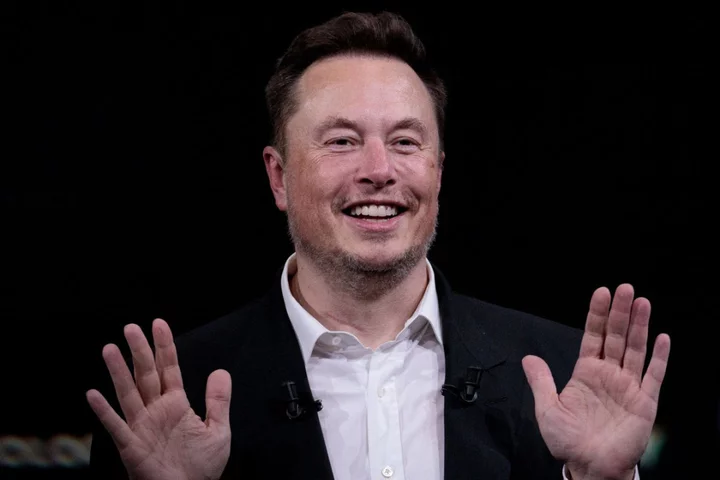
X now valued at $19bn – less than half of what Elon Musk paid for it
Elon Musk’s X is now valued at about $19bn or less than half of what he paid to buy the social media company, according to a new report. The multibillionaire Tesla and SpaceX chief last year finally bought the microblogging platform that was formerly called Twitter for the price of $44bn or $54.20 per share. Mr Musk’s purchase was completed after a months-long legal battle with the company. A new internal valuation has now found there to have been a 56 per cent decrease in the company’s value over the last 12 months, suggested internal documents. Stock grants handed out to employees showed X/Twitter is now worth about $19bn, Fortune reported on Monday. Mr Musk earlier said he had overpaid for the social media platform that he called “an inverse start-up.” In March, he told employees in an email that they would receive stock awards based on a $20bn valuation of the firm. The valuation drop comes as several high-profile advertisers have withdrawn after the Tesla titan’s controversial takeover of the company. Mr Musk’s reign of the platform has been marred by mass layoffs, the chaotic roll out of a number of new features, including the site’s verification process, and the reinstatement of previously suspended high-profile accounts. The company was also rebranded X along with a new logo to replace the bird icon that had been there since the platform’s creation. There have also been rising concerns around X’s content moderation approach. The EU recently opened an investigation into the company as misinformation linked to the Israel-Hamas conflict began to spread on the platform. In July, Mr Musk shared that X is “still negative cash flow” with a “50 per cent drop in advertising revenue plus heavy debt load”. Banks involved in financing the multibillionaire’s deal to buy Twitter are also reportedly struggling to mitigate the impact of platform’s decline in value on their balance sheets. The Tesla and SpaceX boss, however, has remained optimistic about the future of the platform. Mr Musk claimed in an email last year that he saw a “clear, but difficult, path to a >$250B valuation” for the company. In a recent company meeting, he also reportedly expressed his belief that the rebranded X could serve as an all-purpose app with a range of features like job recruitment and dating services. “We’re rapidly transforming the company from sort of what it was, Twitter 1.0, to the everything app with an all-inclusive feature app where you can basically do anything you want on our system,” he said, according to The New York Times. The Independent has reached out to X for a comment. Read More Elon Musk slammed by Israel for offering to send Starlink to Gaza Elon Musk says X posts with misinformation are ‘ineligible for revenue share’ Twitter adds video calling – and lets strangers ring you Elon Musk was ‘almost in tears’ on Tesla earnings call, analyst claims Slack to retire its status account on Elon Musk’s X Tesla’s profits dip as Musk goes on rant about staff working from home
2023-10-31 14:49

Apple MacBook Pro: New laptops revealed with new chips – and new colour
Apple has revealed an updated version of its MacBook Pro, featuring new chips and a new colour. The new computer was launched at its ‘Scary Fast’ event. The only other launch from the event was an update to the iMac, which was first released in 2021, which receives a new processor but no other changes. Both the new laptops and the updated iMac are powered by Apple’s new M3 chip. That is the third generation of the company’s own Apple Silicon chips, since it began producing them in 2020. Apple said that the M3 chip was around 15-30 per cent faster than the previous M2. But it preferred to compare its performance with the Intel chips that it used in its computers until 2019, in what appeared to be a gesture of humility about the changes in the new line-up. As well as the base version of the M3, which will go into the new 24-inch iMac and 14-inch MacBook Pro, Apple launched the more powerful M3 Pro and M3 Max. It is the first time that Apple has unveiled three chips at once – in previous generations, Apple launched the base version of the processor before higher-powered versions some months later. In addition to the new chip, Apple announced a new “space black” colour for the MacBook Pro. It specifically pointed out that it used a particular kind of aluminium that would not pick up fingerprints. The updated 14-inch MacBook Pro received a price cut from $1,999 to $1,599. All of the updated computers will go on sale next week, with the exception of the MacBook Pro with M3 Max, which will arrive later in November. Those three announcements – a new family of chips, alongside a new iMac and two versions of the MacBook Pro to put them in – were the only announcements from the event. Apple also removed the 13-inch version of the MacBook Pro from its line-up, but did not announce it during the event. It lasted only 30 minutes, unusually short for an Apple event. Apple chief executive Tim Cook closed the event by suggesting there would be no more major announcements for the rest of the year. The livestreamed launched had been odd from the beginning. Apple held it at night time rather than its standard morning launch, as well as holding it much later in the year than usual, and announced it with relatively little preparation. Read More Apple is about to launch new products at a shock event - follow live How Apple gave people a library of classical music – and made it accessible Apple is about to add a host of new features to the iPhone
2023-10-31 08:51

Ravaged Florida Town Becomes a Magnet for Risk-Taking Homebuyers
A year after Hurricane Ian ripped through southwest Florida, wealthy risk-takers are transforming one beach town. In Fort
2023-10-31 07:50

Threat of Haywire AI Feeds Calls for Development Pause, AXA Says
Governments are ill-prepared for the hazards brought on by artificial intelligence and development should be paused, according to
2023-10-31 02:56
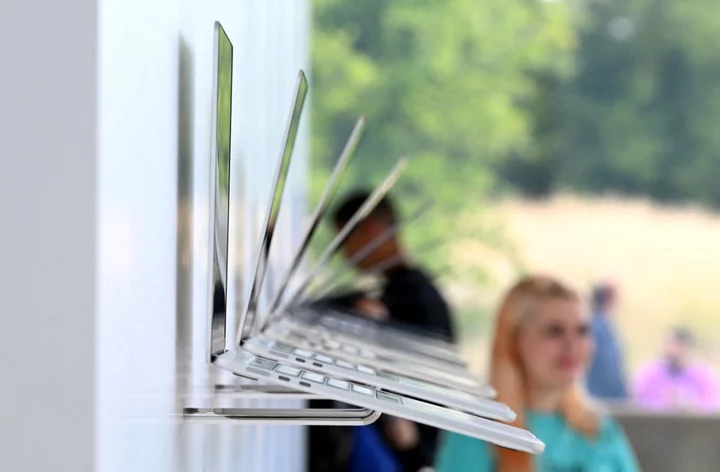
Apple’s ‘Scary Fast’ event updates: How to watch as Apple set to unveil new Macs
Apple is set to hold its latest event – and is promising that it will be “scary”. The event will begin the day before Hallowe’en and is rumoured to be bringing a host of new Macs. The company teased it with an invitation reading “Scary Fast” and apparent references to the Mac operating system. It is Apple’s third major event of the year, after the iPhone launch in September and its Worldwide Developers Conference (WWDC) in June. At WWDC, Apple revealed its new augmented reality headset, which might also feature in the upcoming launch. Otherwise, Apple is rumoured to be updating its iMac with a new chip, and putting new processors in its high end, 14- and 16-inch MacBook Pro. It will begin at 5pm local pacific time, which is 8pm eastern or 1am in the UK. It will be livestreamed on YouTube as well as Apple’s website.
2023-10-31 01:19
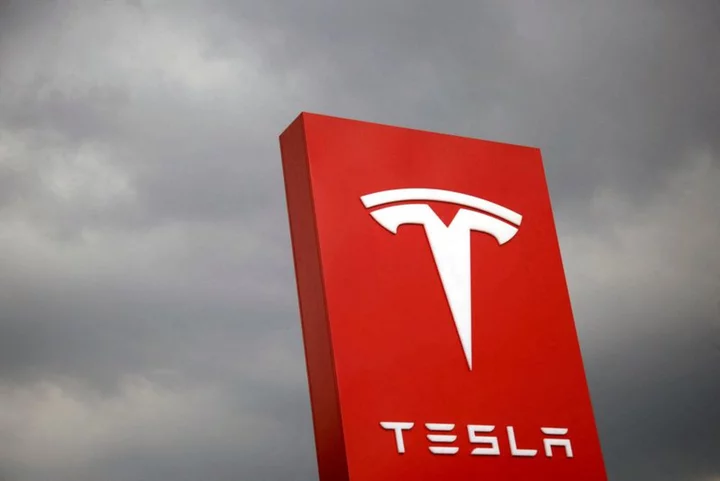
Tesla falls as production cut by battery supplier Panasonic fans EV demand fears
Shares of Tesla fell about 5% on Monday after key supplier Panasonic Holdings said it cut automotive battery
2023-10-31 01:15
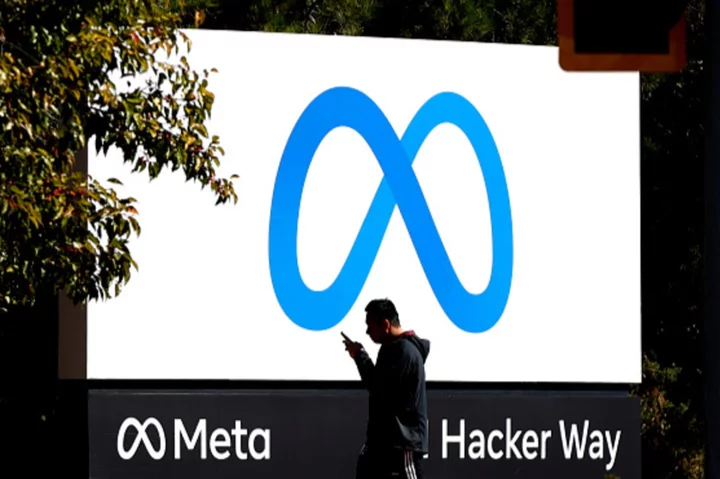
Meta launches paid-for version of Instagram and Facebook
Meta will launch a paid-for, subscription-based version of Facebook and Instagram. The company will allow people to pay up to €13 to have no ads appear on those apps. The change has been made to comply with European Union regulations, it said. As such, it will only be available to people in the EU, the European Economic Area and Switzerland. The monthly subscription plans for users in the EU, European Economic Area and Switzerland, will cost 9.99 euros ($10.58) for web users, while iOS and Android users will have to shell out 12.99 euros a month. The difference is to account for the fees taken by Apple and Google for payments on its platforms, Meta said – a move that follows a similar price difference for Twitter’s premium offering. The EU regulations threaten to curb Meta’s ability to personalize ads for users without their consent and hurt its major revenue source. Users across the world will continue to be able to use the site for free, and will see no change to their experience as a result, Meta said. But offering the paid-for subscription version allows Meta to comply with “the requirements of European regulators”, the company said, after a recent ruling. Having the option of paying for a version of Facebook and Instagram with no ads means that people will have more clearly consented to having their data used for marketing, Meta suggested it in its announcement. That in turn means it will better comply with European regulations, it said. The world’s most popular social media network has been under antitrust pressure in the EU. In July, it lost its fight against a German data curb order as Europe’s top court backed the German antitrust watchdog’s power to also investigate privacy breaches. Offering a choice between a free, ad-supported plan and an ad-free paid subscription might lead to users opting for the former, helping Meta to comply with the regulations without affecting its ad business. Meta was fined 390 million euros earlier this year by Ireland’s Data Privacy Commissioner, and was told it cannot use the so-called “contract” as a legal basis to send users ads based on their online activity. The company later said it intended to ask users in the EU for their consent before allowing businesses to target ads in order to address evolving regulatory requirements in the region. Additional reporting by agencies Read More Threads is not dying, Mark Zuckerberg insists Letitia James and 32 other attorneys general sue Meta for ‘harming youth’ People’s Instagram posts are showing where they are not expected
2023-10-30 23:54
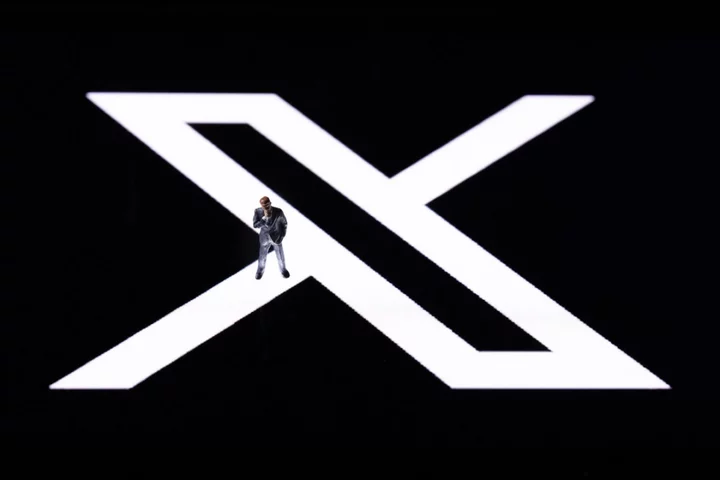
Elon Musk says X posts with misinformation are now ‘ineligible for revenue share’
Posts on X carrying any misinformation that is corrected by the platform’s crowd-sourced fact-checking system will now be “ineligible for revenue share”, the social media company’s owner Elon Musk has said. “Any posts that are corrected by Community Notes become ineligible for revenue share,” the multibillionaire posted on X on Sunday. Mr Musk said the change aims to “maximise the incentive for accuracy over sensationalism”. The Tesla titan also noted that any attempts to “weaponise Community Notes to demonetise people will be immediately obvious, because all code and data is open source.” Some users were quick to criticise the change, observing that the feature is used not just to correct misinformation, but also to add essential context even if there is nothing wrong with the initial post. The Community Notes feature was first launched by Twitter co-founder and former chief Jack Dorsey in 2021 as a way to debunk misleading tweets. Currently, eligible users on the social media platform can sign up to contribute to Community Notes, which involves sharing a short note of context for any post, including correcting an error or providing essential information that has been omitted. An account can sign up for Community Notes, according to X, if the user has not recently violated the platform’s rules and has been on the platform for at least 6 months. Other users who view the note can then rate the helpfulness of notes with the note garnering the largest consensus surfacing to the top. Then earlier this year, Twitter/X started paying creators on the platform for the first time via a revenue-sharing program that provided them compensation for the ads appearing in their reply threads. But the social media platform has come under increasing scrutiny for its handling of misinformation since Mr Musk bought Twitter for $44bn last year and cut nearly two-thirds of the company’s workforce. The platform’s handling of misinformation has particularly been on focus following the conflict in Israel and Gaza. The European Union also raised concerns that amid the conflict Twitter was not quick to take down problematic content even when it had been flagged by relevant authorities. EU commissioner Thierry Breton noted that Twitter was hosting “fake and manipulated images and facts ... such as repurposed old images of unrelated armed conflicts or military footage that actually originated from video games”. The EU has also opened an investigation into X on the issue, while the company maintained that it has removed hundreds of Hamas-linked accounts in response to the concerns. Read More Twitter takeover: 1 year later, X struggles with misinformation, advertising and usage decline Tesla’s profits dip as Elon Musk goes on rant against staff working from home ‘He brought so much joy’: Heartbroken Friends stars among those paying tribute to Matthew Perry Twitter adds video calling – and lets strangers ring you Elon Musk was ‘almost in tears’ on Tesla earnings call, analyst claims Slack to retire its status account on Elon Musk’s X
2023-10-30 12:59
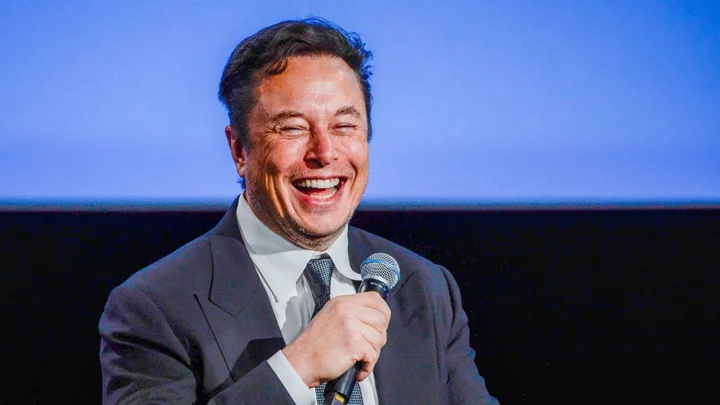
One year on: A timeline of Elon Musk's farcical first year as Twitter/X owner
It’s hard to remember a time where Twitter didn’t have Elon Musk’s fingerprints all over it. But it was on 28 October 2022 that Musk took over the social media platform after purchasing it for a whopping $44bn. In the months that followed, the company changed dramatically - both publicly and behind the scenes - and for many of us, our relationship with the app has never been the same. Here’s everything Elon Musk has done since buying Twitter. Kicked things off with a dad joke “Let that sink in…” Yes, he really did this. Made half of the staff redundant In November, Twitter announced that it was laying off half of its workers – a cut of around 3,740 jobs. “Twitter has had a massive drop in revenue, due to activist groups pressuring advertisers, even though nothing has changed with content moderation and we did everything we could to appease the activists. Extremely messed up! They’re trying to destroy free speech in America,” Musk wrote at the time. "Unfortunately there is no choice when the company is losing over $4M/day," he tweeted. He would also go on to fire all of Twitter HQ's janitors, and issue a childish response to more than 775 discrimination cases against Twitter. Then publicly humiliated an employee who asked if he'd been sacked Musk was forced to apologise after a humiliating exchange in which he appeared to mock a disabled Twitter worker. Days after having access to his work computer cut and following numerous unanswered emails, one worker was forced to directly tweet Elon Musk asking him a seemingly straightforward question: had he been sacked? Rather than answer it, or get his HR team to do so, Musk decided to publicly put the man through the wringer – subjecting him to a brutal tweet exchange which included a pair of “rolling on the floor laughing” emojis. The thread has been branded “disgraceful” by thousands of users, who have condemned Musk as the “worst boss ever”. In the original tweet, senior product designer Halli Thorleifsson wrote: “Dear [Elon Musk], 9 days ago the access to my work computer was cut, along with about 200 other Twitter employees. However, your head of HR is not able to confirm if I am an employee or not. You've not answered my emails. Maybe if enough people retweet you'll answer me here?” The platform’s infamous boss replied curtly: “What work have you been doing?” before proceeding to engage in a back-and-forth that reads like a live job interview, with questions including: “What changes did you make to help with the youths?” and infantile comments like: “Pics or it didn’t happen”. The Twitter boss later said that he had received bad information about the situation, and had a video call with the affected staff member to apologise. The Twitter Blue mess On 30 October, Musk took to Twitter to share that the "whole verification process is being revamped". While a blue tick on Twitter used to help limit impersonation and prove the validity of tweets from high-profile individuals such as journalists, Musk decided he didn't like that idea and made the platform's paid subscription option - Twitter Blue - include the coveted verification icon. Those who didn't want to pay a regular fee to keep their blue tick eventually lost it in April this year. Got really petty about his social media competitors So it wasn't long before people were considering jumping ship for rival social media platforms - one of the most popular sites at the time of Musk's takeover being that of the decentralised platform, Mastodon. Except, Musk seemed to catch on to people fleeing Twitter and sharing their Mastodon links on the app, as the platform suddenly stopped allowing users to post URLs from the other site. Embarrassing. In April this year, he also blocked Twitter embeds on Substack, after they rolled out a feature called 'Notes' which bore a striking resemblance to his platform, and in July he threatened to sue Instagram's text-based app Threads. Reinstated the Twitter accounts of terrible people Republican congresswoman Marjorie Taylor Greene, former president Donald Trump, psychologist Jordon Peterson, Kanye "Ye" West and "misogynistic" influencer Andrew Tate were all allowed back onto the platform towards the end of November after they were previously banned from Twitter for Terms of Service violations. For example, Trump was banned following the January 6 insurrection, while Peterson was banned over a transphobic comment made about trans actor Elliot Page. Ye, meanwhile, was previously suspended for antisemitic tweets, before Musk banned him again following him tweeting a swastika inside the Star of David. He was allowed back on Twitter eight months later, in July. 'The Twitter Files' non-story In December, Musk amplified reporting from Matt Taibbi dubbed "The Twitter Files" which was supposed to expose political influence over Twitter and the social media platform's partisan management, but instead just revealed a perfectly legitimate request from the Biden presidential campaign team to remove pornographic images of Hunter Biden. The ElonJet saga Then there was all the drama around ElonJet, an account managed by Jack Sweeney while studying at the University of Central Florida which tracked Musk's use of his private jet using publicly available flight information. 'Free speech absolutist' Musk had offered the account owner $5,000 in early 2022 to take down the account, but went further when he was handed the 'keys' to Twitter, as he suspended the account outright. It later returned, but with a 24-hour delay. Sweeney would eventually troll Musk by joining major rival, Threads. Temporarily banned a load of journalists In scenes related to the ElonJet situation, reporters from outlets such as CNN, the New York Times and The Washington Post were suspended from Twitter, with Musk writing: "[The] same doxxing rules apply to 'journalists' as to everyone else." When one journalist was able to challenge Musk on the bans, he reacted totally rationally by temporarily binning the live audio feature, Twitter Spaces. The poll which ousted him as Twitter CEO In December, amid continued scrutiny over his management of Twitter, Musk posted a poll on his future as CEO of the company, allowing users to determine his fate. He lost. Musk would later claim his dog was calling the shots at Twitter, before hiring NBCUniversal advertising chair Linda Yaccarino in May. Divided the home page into 'For You' and 'Following' One of the bigger changes to the site itself came in January when an update saw the timeline split into two with ‘For You’ and ‘Latest’ feeds. A thread from Twitter Support in January read: “See the tweets you want to see. Starting today on iOS, swipe between tabs to see Tweets recommended ‘for you’, or tweets from the accounts you’re ‘following’. “The ‘For You’ and ‘Following’ tabs replace ‘home’ and ‘latest’ and will be pinned to the top of your timeline so you can easily switch between them. Swipe to switch timelines instead of tapping the [stars] icon.” The Tesla and SpaceX owner also implemented a "view count" on tweets to let others know how many times a post has been seen. This follows in the footsteps of the video model, where fellow tweeters are shown how many views a video has accumulated. One of the stranger moves also saw him introduce a marker that lets people see how many times a post had been bookmarked. So. Many. Outages. They got so bad, in fact, that Musk admitted in March that the site is "brittle". In July, things broke some more to the extent that the owner had to implement a 'reading limit' on tweets. Implementing a bizarre auto-reply from Twitter's press inbox In March, it started sending poop emojis. We wish we were joking. Pathetic name changes The Twitter CEO switched the site’s usual logo featuring the blue bird to the Doge meme featuring a Shiba Inu named Kabosu in April. The change led to Dogecoin prices surging by 33 per cent. It seemed like a very random decision, but it turns out he’s had the idea for a pretty long time. Back in 2022, Musk engaged with Twitter user @WSBChairman, who said on March 26 that he should “just buy Twitter… and change the bird logo to a doge”. In the same month, he also removed the 'w' from the Twitter sign outside Twitter HQ to spell... well, you know exactly what it spells... Cheesing off bereaved families In May, Musk announced a 'purge' of inactive accounts, angering those who had loved ones who have since passed away, for whom their Twitter accounts are a way of remembering them. The Elon Musk vs Mark Zuckerberg cage fight (which is yet to happen) Seeing the Meta owner as a new competitor after buying out a social media platform, Musk challenged Zuckerberg to a cage fight, which Zuck - who has won a jiu jitsu competition - accepted, but the fight has not actually taken place. Disappointing. The actual name change Oh, sorry, have we been using 'Twitter' to refer to Musk's app? We mean X. Musk rebranded it to a single letter in July, though many still people still refer to it as its old name. Oops. Actually charging people to use X In more recent developments, Musk has even gone so far as to charge people for the privilege of joining his dysfunctional social media platform. Earlier this month it was announced that new users in New Zealand and the Philippines will have to cough up $1 (£0.82) a year to access key features such as tweeting, retweeting, liking posts and replying. 'Illegal content and disinformation' over Israel-Hamas war Now, as the Israel-Hamas conflict continues, Musk has been criticised for his platform allowing disinformation to run rife amid the war, to the point that the European Union - more specifically, European Commissioner Thierry Bretan - wrote a letter to the business owner warning him that his site is "being used to disseminate illegal content and disinformation". We can't say we're looking forward to another year of Musk's rule... Sign up to our free Indy100 weekly newsletter How to join the indy100's free WhatsApp channel Have your say in our news democracy. Click the upvote icon at the top of the page to help raise this article through the indy100 rankings.
2023-10-30 03:49
You Might Like...

AI robots figure out how to play football in shambolic footage

Scientists discover secret planet hiding in our solar system
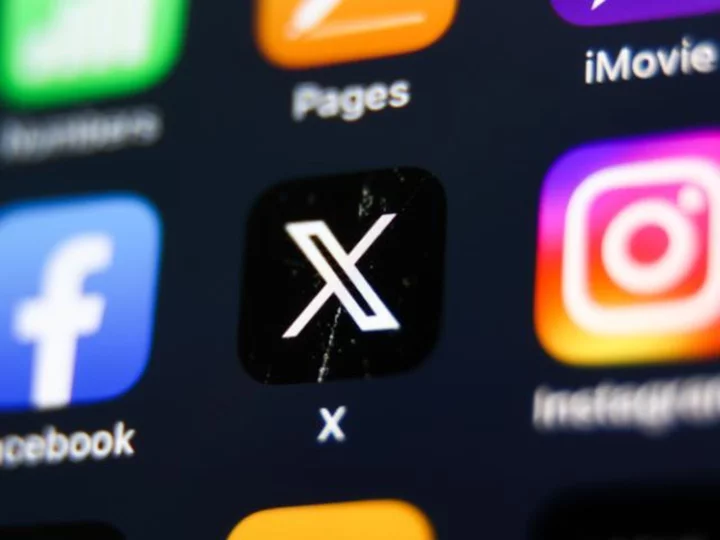
X will allow political ads again and hire for safety and election teams ahead of 2024 elections

Gooooal! NY Sports Complex Deploys K5 and Fortune 1000 Hotel Renews Contract for 2nd Year

Veritone to Unveil Insights and Spearhead Discussions at Voice & AI 2023

Why the Supreme Court tiptoeing past a key social media shield helps Big Tech
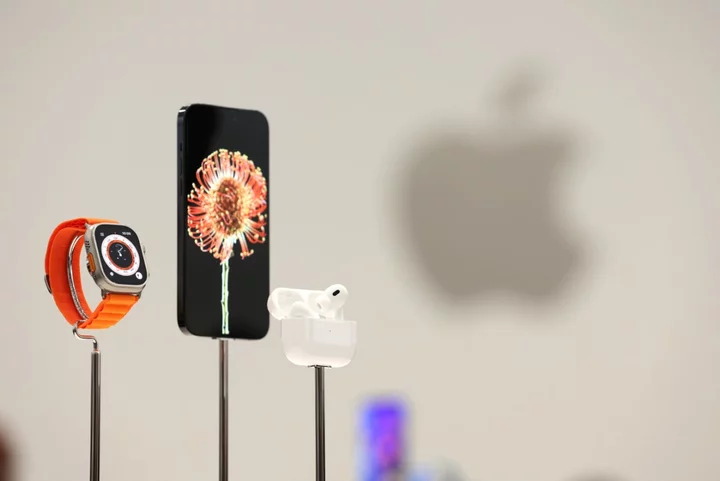
Apple could be dropping leather from iPhone cases and Watch bands, reports claim

Jill Biden touts efforts to bring better internet to Alaska Native villages
